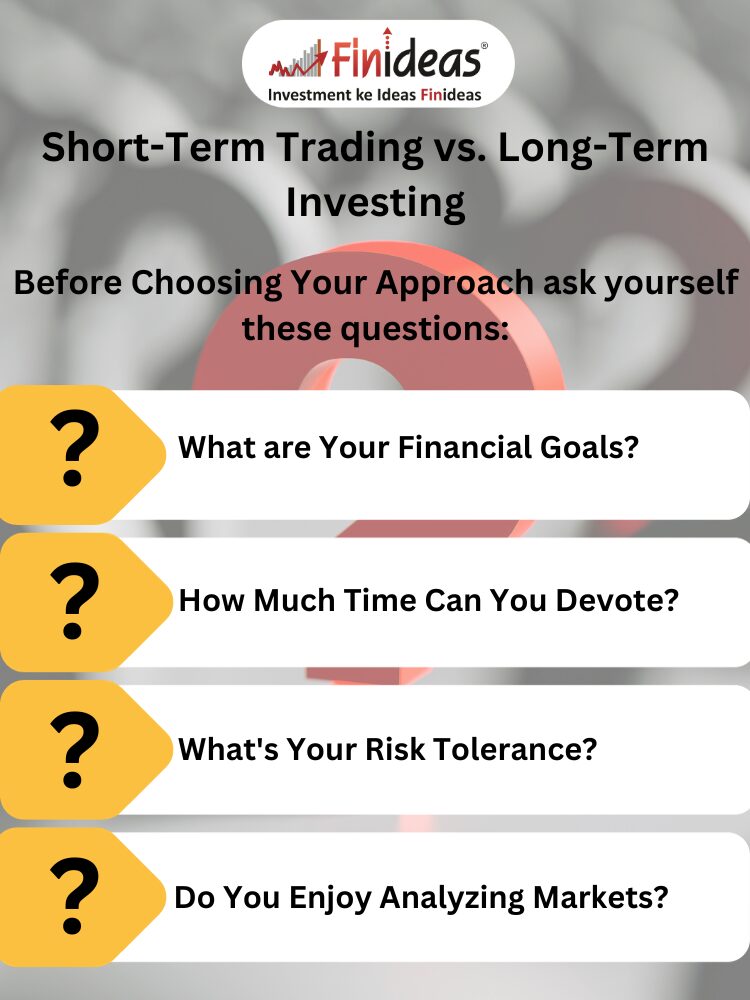Short-Term Trading vs. Long-Term Investing
In the dynamic world of financial markets, individuals often find themselves at a crossroads when deciding how to engage with their investments. The debate between short-term trading and long-term investing is a perennial one, each strategy offering its own set of advantages and challenges. In this blog post, we’ll explore the characteristics of both approaches and guide you in choosing the one that aligns with your financial goals.
Short-Term Trading: Riding Market Volatility
Advantages:
- Quick Profits: Short-term traders aim to capitalize on market fluctuations, making profits in a relatively brief period.
- Flexibility: Traders can react swiftly to breaking news, market trends, or technical indicators, adjusting their positions accordingly.
Challenges:
- High Risk: Short-term trading is inherently riskier due to the unpredictable nature of short-term price movements.
- Time-Intensive: Constant monitoring and decision-making can be demanding, requiring a significant time commitment.
Long-Term Investing: Patience Pays Off
Advantages:
- Compound Growth: Long-term investors benefit from the compounding of returns over time, potentially leading to substantial gains.
- Lower Transaction Costs: With fewer trades, long-term investors incur fewer transaction costs compared to frequent traders.
Challenges:
- Market Volatility: Enduring market ups and downs without making impulsive decisions can be challenging for long-term investors.
- Delayed Returns: While the potential for significant returns exists, it may take years to see substantial growth.


The decision between short-term trading and long-term investing ultimately depends on your financial objectives, risk tolerance, and time commitment. Consider the following questions:
- What are Your Financial Goals? Are you looking for quick profits or aiming for long-term wealth accumulation?
- How Much Time Can You Devote? Assess your availability to monitor the markets regularly. Short-term trading demands more time and attention.
- What’s Your Risk Tolerance? Understand your comfort level with risk. Short-term trading is riskier, while long-term investing is often seen as a more stable option.
- Do You Enjoy Analyzing Markets? If you find joy in studying market trends and indicators, short-term trading may be more appealing. Long-term investors often adopt a more hands-off approach.
Now you have to decide what do you prefer short term trading or long term investment, if long term investment then you must know about a fantastic strategy called Index Long Term Strategy.
Share Your Thoughts
Now it’s your turn! Which approach resonates with you, and why? Are you a short-term trader, a long-term investor, or a combination of both? Share your experiences and insights in the comments below. We’d love to hear your perspective on navigating the diverse landscape of financial strategies.
This article is for education purpose only. Kindly consult with your financial advisor before doing any kind of investment.
Happy Investing!

